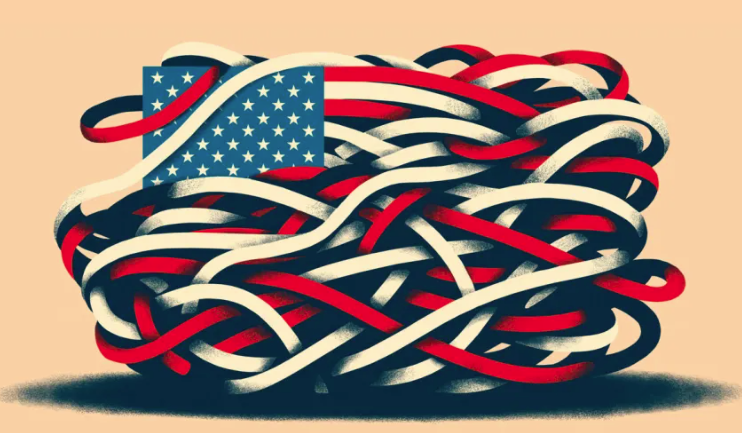
Democracy is dying "in plain sight" happens when citizens, particularly voters, become disengaged with the political system. Low voter turnout can be as devastating to democratic institutions as the active efforts of those seeking to dismantle them.
When large segments of the population stop participating in elections or the civic process, they inadvertently hand over power to those who remain active, often enabling the rise of authoritarian leaders who can take advantage of the system's inherent flaws.
At the same time, authoritarian figures often rise by exploiting the very structures designed to safeguard democracy. The tragedy is that they don’t always need to stage a violent coup. Instead, they use the tools of democracy—the courts, the media, electoral systems, and public institutions—to incrementally shift the balance of power in their favor. In many cases, their actions are framed as legitimate, often with the approval or indifference of the public, making it difficult for opponents to mobilize effective resistance.
This dynamic is particularly dangerous because it can unfold in stages, each one appearing beneficial at the time. For example, judicial appointments and court-packing might be justified as correcting perceived imbalances, media censorship or control can be masked as efforts to protect national security or "combat fake news," and changes to voting laws or electoral districts are often framed as necessary reforms to ensure fairness.
In this way, democratic institutions can be hollowed out from the inside, often without a clear breaking point that would prompt widespread outrage. Once the opposition is weakened and the institutional checks are gone, the transition to autocracy becomes difficult to reverse.
One of the most concerning aspects of this erosion is how it plays on the idea that "rules" are neutral and can be manipulated without violating any fundamental principles. When democratic norms are weakened or eroded by seemingly legal or legitimate means, it can be very difficult for citizens to see or understand the danger until it’s too late.
Ultimately, the answer to whether democracy will "die" in plain sight depends on how citizens fail to engage with the system. Suppose the public continues to abdicate responsibility and allows the slow creep of authoritarianism to unfold unchecked. In that case, democracy will indeed be subverted, and the processes that once ensured fairness and accountability could collapse under their weight. Conversely, a well-informed, active citizenry can resist these changes, even in plain sight, by holding institutions accountable, demanding transparency, and participating fully in the democratic process.
A government by the people in which the supreme power is vested in the people and exercised directly by them or by their elected agents under a free electoral system." Abraham Lincoln, democracy is a government "of the people, by the people, and for the people.
For kingship, it is tyranny, for aristocracy, an oligarchy, and for democracy, government by brute force.
"To safeguard democracy the people must have a keen sense of independence, self-respect, and their oneness." "The care of human life and happiness, and not their destruction, is the first and only object of good government.”
The United States is a democratic republic with a free press. It’s been going strong for hundreds of years. but will it continue?
I witnessed the end of it firsthand in Cuba as the system of government devolved from a once democratic system to a dictatorship and on to Communism.
IMAGE: GETTY PLUS